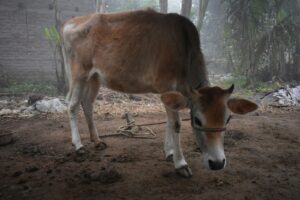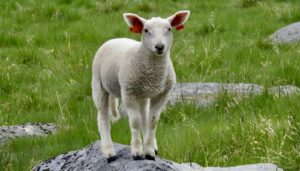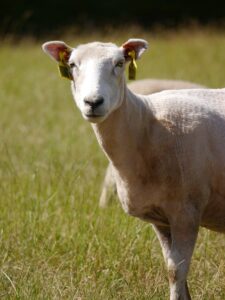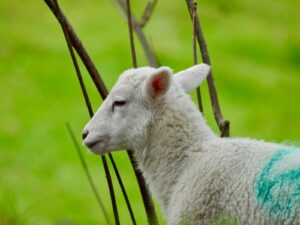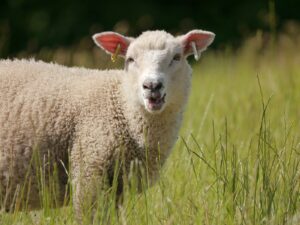Revolutionizing Herd Management through IoT Technology
Integrating IoT-enabled devices in livestock management is transforming the way farmers and ranchers in regions like Saudi Arabia and the UAE track and manage their herds. These advanced devices offer real-time monitoring of animal health, location, and behavior, providing invaluable data that can be used to optimize farm operations. With the increasing demand for efficient and sustainable farming practices, IoT technology is becoming an essential tool in the modern livestock industry.
In Saudi Arabia and the UAE, where the agricultural sector faces unique challenges due to harsh environmental conditions, IoT-enabled devices are playing a crucial role in improving herd management. By utilizing sensors and GPS trackers, farmers can monitor the movement and health of their livestock remotely, reducing the need for manual checks and allowing for quicker responses to potential issues. For instance, if a cow’s activity level drops suddenly, indicating possible illness, the system can alert the farmer immediately, enabling early intervention and reducing the risk of disease spreading through the herd.
Moreover, these IoT devices can help optimize feeding schedules and grazing patterns by analyzing data on animal behavior and environmental conditions. This level of precision in livestock management not only enhances productivity but also contributes to the overall well-being of the animals, leading to higher-quality meat and dairy products. As a result, farmers in Riyadh and Dubai are increasingly adopting IoT technology to stay competitive in the global market.
Improving Herd Health and Productivity
The integration of IoT-enabled devices in livestock management is particularly beneficial in monitoring the health and productivity of herds. In regions like Saudi Arabia and the UAE, where livestock farming is a significant part of the economy, ensuring the health of animals is paramount. IoT devices can monitor vital signs such as heart rate, temperature, and activity levels, providing early warnings of potential health issues. This proactive approach to herd management allows farmers to address problems before they escalate, reducing the risk of costly losses.
For example, in a smart farming initiative in Dubai, IoT-enabled collars were used to monitor the health and behavior of camels. These collars provided real-time data on the camels’ movements, feeding habits, and overall health. The data collected was then analyzed to optimize feeding schedules and detect early signs of illness. As a result, the farm saw a significant increase in the productivity and health of its camels, demonstrating the potential of IoT technology to revolutionize livestock management.
Furthermore, IoT devices can also help manage breeding programs by tracking the reproductive cycles of animals. By monitoring factors such as temperature and behavior changes, these devices can predict the optimal time for breeding, increasing the success rate of reproduction and enhancing the genetic quality of the herd. This capability is particularly valuable in regions like Riyadh, where livestock breeding is a key component of agricultural sustainability.
The Future of Livestock Farming: IoT-Enabled Innovations
Sustainable Livestock Management with IoT Technology
The adoption of IoT-enabled devices in livestock management is paving the way for more sustainable farming practices in the Middle East. As countries like Saudi Arabia and the UAE continue to invest in agricultural innovation, IoT technology will play a crucial role in meeting the region’s food security goals. By providing farmers with detailed insights into the health and behavior of their herds, IoT devices help optimize resource use and reduce environmental impact.
In Riyadh, for example, IoT technology is being used to create sustainable grazing patterns that minimize land degradation and promote the regeneration of pastures. By tracking the movement and grazing habits of livestock, farmers can adjust grazing schedules to prevent overgrazing and ensure that land is used efficiently. This approach not only supports the health of the herd but also contributes to the long-term sustainability of the farming ecosystem.
In addition to environmental benefits, IoT-enabled livestock management can also improve the economic sustainability of farms. By reducing losses due to illness and optimizing breeding and feeding practices, farmers can increase their profitability while maintaining high standards of animal welfare. As more farms in Dubai and across the region adopt IoT technology, the cumulative impact will be a more resilient and sustainable agricultural sector.
Challenges and Opportunities in IoT-Enabled Livestock Management
While the benefits of integrating IoT-enabled devices in livestock management are clear, there are also challenges that must be addressed to fully realize their potential. One of the primary challenges is the initial cost of implementing IoT technology, which can be a barrier for small and medium-sized farms. Additionally, ensuring reliable connectivity in remote areas, where many livestock farms are located, can be difficult. However, as IoT technology becomes more widespread and affordable, these challenges are likely to diminish.
Opportunities for growth in IoT-enabled livestock management are abundant, particularly in the Middle East, where the agricultural sector is rapidly evolving. By embracing IoT technology, farmers can improve the efficiency and sustainability of their operations, positioning themselves as leaders in the global market. Moreover, the data collected through IoT devices can be used to drive innovation in animal health, breeding, and nutrition, opening up new possibilities for improving the quality and productivity of livestock.
As the agricultural landscape in Saudi Arabia, the UAE, and beyond continues to change, the integration of IoT technology in livestock management will be essential to staying competitive. By leveraging the power of real-time data and automation, farmers can overcome the challenges of modern livestock farming and capitalize on the opportunities presented by this technology.
Conclusion: Embracing IoT for the Future of Livestock Management
The integration of IoT-enabled devices in livestock management is a game-changer for farmers in Saudi Arabia, the UAE, and across the Middle East. By providing real-time insights into the health, behavior, and location of livestock, IoT technology enables more efficient and sustainable farming practices. As the region continues to invest in agricultural innovation, IoT-enabled livestock management will be at the forefront of efforts to enhance food security, improve animal welfare, and reduce environmental impact.
For business executives, mid-level managers, and entrepreneurs in the agricultural sector, understanding and adopting IoT technology is crucial to staying ahead in an increasingly competitive market. The success stories emerging from smart farming projects in Riyadh, Dubai, and beyond highlight the transformative potential of IoT in livestock management. By embracing these innovations, the Middle East can lead the way in creating a more sustainable and profitable future for the livestock industry.
—
#IoT #LivestockManagement #SmartFarming #Sustainability #SaudiArabia #UAE #Riyadh #Dubai #BusinessSuccess


